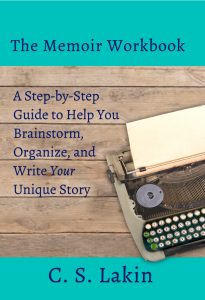Questions to Ask before Writing Your Memoir
If you’ve thought about writing a memoir (which is hugely popular these days), it’s helpful to ask some questions before you get started.
As with any book, it’s helpful to put together an outline of what you plan to write about. But before you can get to that point in the writing process, you need to understand how to tell a powerful, moving story and what thwarts that attempt.
And most importantly, you need to ask questions.
Creating a structure for your memoir is not about reinventing the wheel. You can and should base your structure off of memoirs that have already been written, though you may feel the best structure for your memoir is a unique one. Regardless, before you dig into telling your story, do your homework. Read memoirs that sound as if they might be similar to yours.
- Think about the tone of your story. Will it be humorous? Snarky? Dead serious? Intense? A mixture of all these?
Is your story about overcoming? Surviving a tragedy or horrible situation? The tone you set for your story matters greatly. If you’ve found that humor was what helped you get through, then you’ll want to bring that humor into your story without making light of your suffering or others’.
If yours is an uproarious account of some period in your life, by all means, make it funny. But consider including the heavy, serious moments that bridge those times.
Some memoirs are wild rides that take the reader through hilarious moments to horribly tragic ones. They are a journey of experience, often a unique or amazing one, and the purpose of the telling is to entertain, enlighten, inspire and/or instruct.
- Consider your purpose. It’s important for you to decide, before you begin, on your purpose.
Maybe you want to write your story as a cathartic experience, and you don’t intend to share it with anyone (or more than a few people). That’s perfectly fine, and it can be extremely healing.
Maybe you want to write your story to help others who might be going through what you went through. In that case, you have a specific audience you are writing to.
Anytime you aim to sell a book to consumers (readers), you need to define and target your niche audience. And that requires some homework to figure out who that audience is and the best way to write your book to appeal to them.
- And where will you begin your tale? Start thinking about why you want to write your memoir, for whom, and what take-home message or feeling (theme) you want to leave readers with.
What do I mean by a “take-home” message? It’s the emotion, reflection, or truth you want readers to feel they’ve learned and experienced through your story. It’s the thought that lingers in their mind long after they finish reading your m emoir. You may have many such moments in your memoir, but when readers close the book, they will have an overall feeling about the story they just read.
emoir. You may have many such moments in your memoir, but when readers close the book, they will have an overall feeling about the story they just read.
All this, of course, may change once you get into writing. But it’s a place to start.
What kind of story is yours?
One thing to clear up: memoirs are not autobiographies.
Memoir vs. Autobiography
Memoirs are a slice of life. They aren’t the entire account of your life but center on a specific time in which something significant happened. If you want to write the story of your life, that’s an autobiography, and while much of what is presented in this workbook can be applied to writing an autobiography, know that they are two different things.
You can write many memoirs. Think of the journey of a man who studies hard to be the first in his family to graduate college. Or be the first woman of color to serve as a judge in her county. Or consider the person who ventures out for a month to help starving children in a war-torn country or aid in a hurricane rescue of people or animals. Each of these could be the subject and content of a full memoir.
No doubt you could think of a capsule of time in which you began a journey, whether spiritual, emotional, or actual (or all three). Any experience that you’ve had in which you grew, learned, changed, and possibly impacted others in a significant way holds potential for memoir.
Because of this, you don’t have to have lived a long full life in order to tell the story that is on your heart. You could be a high school student who spent a year abroad in an exchange program. You could be a college student who stood up and spoke out when injustices broke out on campus.
And, in contrast, some have penned their memoirs well into their eighties, and even later. Age is not a consideration when it comes to telling a powerful, important, or even just amusing story.
When we write a memoir, we go on a journey of discovery—of awareness, acceptance, understanding, and sometimes healing. Memoir is a search for self, but your memoir is not the attempt to answer “Who am I?” but “Who am I in this story?”
The Memoir Workbook provides both thought-provoking questions and samples from memoirs to help aspiring memoirists to brainstorm, organize, and write their story. It includes many writing prompts and writing-craft tips designed to provide the basics for writing memoir in a cinematic style. Rather than tell the story of a time in your life, consider bringing those moments to life using fiction techniques (some call this creative nonfiction).
While The Memoir Workbook can only go so far with teaching writing craft, it touches on some of the important elements of fiction story structure, dialogue, and “character” presentation.
Maybe this will be the year you write that memoir you’ve always wanted to write. What’s stopping you? If you’ve been puzzled about how and where to start your story, this workbook will lead the way! You can buy your copy (paperback only, because you need to write in it!), HERE on Amazon!
Featured Photo by Prophsee Journals on Unsplash











